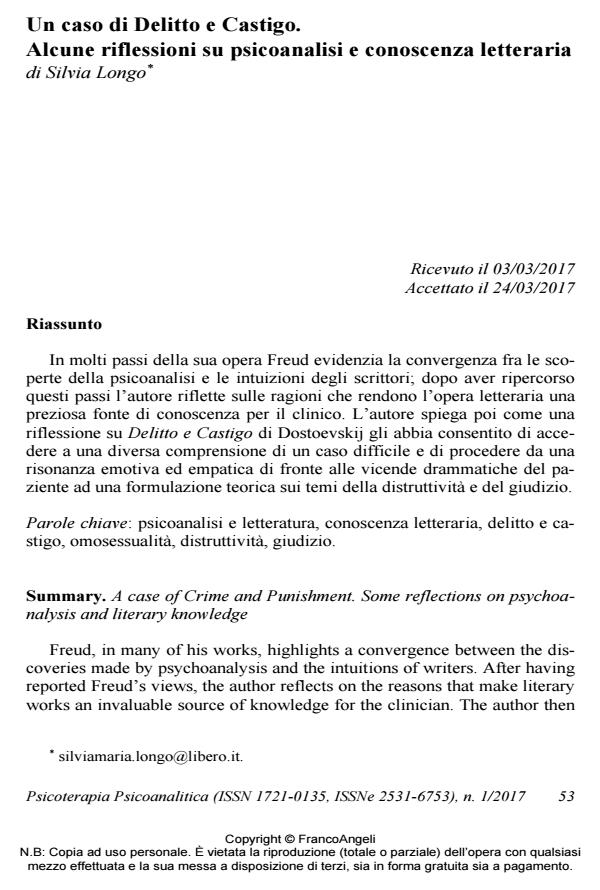A case of Crime and Punishment. Some reflections on psychoanalysis and literary knowledge
Journal title PSICOTERAPIA PSICOANALITICA
Author/s Silvia Longo
Publishing Year 2017 Issue 2017/1
Language Italian Pages 14 P. 53-66 File size 176 KB
DOI 10.3280/PSP2017-001004
DOI is like a bar code for intellectual property: to have more infomation
click here
Below, you can see the article first page
If you want to buy this article in PDF format, you can do it, following the instructions to buy download credits

FrancoAngeli is member of Publishers International Linking Association, Inc (PILA), a not-for-profit association which run the CrossRef service enabling links to and from online scholarly content.
Freud, in many of his works, highlights a convergence between the discoveries made by psychoanalysis and the intuitions of writers. After having reported Freud’s views, the author reflects on the reasons that make literary works an invaluable source of knowledge for the clinician. The author then explains how her reflections on Crime and Punishment by Dostoevskij fostered a new understanding of a difficult case and an important move from an emotional and an empathic dimension in the face of the dramatic experiences of the patient to a theoretical formulation around the themes of destructiveness and judgement.
Keywords: Psychoanalysis and literature, literary knowledge, crime and punishment, homosexuality, destructiveness, judgement.
Silvia Longo, Un caso di Delitto e Castigo. Alcune riflessioni su psicoanalisi e conoscenza letteraria in "PSICOTERAPIA PSICOANALITICA" 1/2017, pp 53-66, DOI: 10.3280/PSP2017-001004